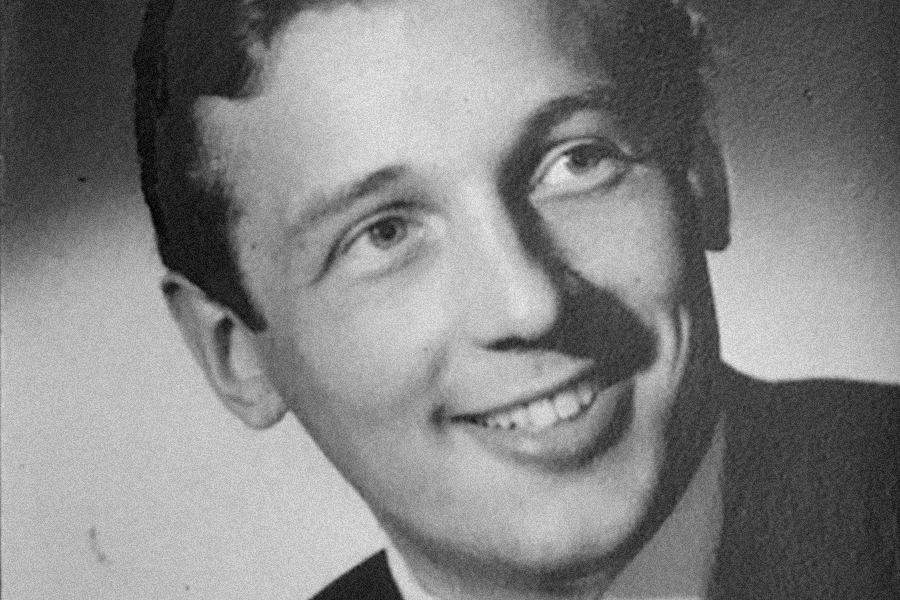
Victor Zicha
I’ve been passionate about cooking ever since I was a child. Shortly after the Second World War, as a new adult, I took the opportunity to leave for Lausanne, Switzerland. There I graduated École hôtelière, a hospitality school. Meanwhile back home in Czechoslovakia Communists seized power and it became clear to be that I wouldn’t be coming back.
For a while I kept in touch with my homeland by working in a kitchen of Czechoslovak embassy in Haag, Netherlands, but I soon left for Stockholm. I was offered a cooking position in one of the best Swedish hotels; thanks to that I was able to prepare a few meals for the king Gustav V. himself.I was young back then and I didn’t see the appeal of staying in one city for too long. I had an adventurous spirit; I wanted to see the world. I accepted a position on a cargo ship and visited a good part of Europe, Middle East, Africa and even South America.
I was young back then and I didn’t see the appeal of staying in one city for too long. I had an adventurous spirit; I wanted to see the world. I accepted a position on a cargo ship and visited a good part of Europe, Middle East, Africa and even South America.
I ended up growing fond of Montreal in Canada, where I also met my future wife, and so I settled down. I opened a small restaurant, but in time I felt like I wanted to also create something else apart from food. I signed up for an art school and eventually I started to teach as well – sharing my love for art with my students made me as happy as serving someone a superb meal. In a few years I earned a doctorate at the New York University. That was in 1968.
Around that time I was elected a president of the Czechoslovak Association of Canada. After the soviet invasion of our homeland a new wave of people emigrated. Those of us who have already built a second home in Canada, did what we could to help the newcomers.

During the 80’s, a soviet plane, an Ilyushin, flew from Prague once or twice a week, bringing tourists to Havana. It didn’t officially stop in Montreal but since Cuba was about as far as it could fly, it often had to stop and refuel. And people fleeing Communism often took this opportunity. On average it was about two refugees a week, sometimes it was ten, twelve, on one occasion it was even seventeen people from one aircraft.
Emigrating naturally wasn’t easy – you were often leaving behind your family, friends, your life up until that day, and you couldn’t pack anything in your suitcase that would give you away: warm socks, family pictures, nothing. If they had the slightest suspicion they didn’t let you board the plane in Prague.
And we helped these people get a refugee status, find a place to live, a job, learn the language… They often summoned me to the airport in the middle of the night, but I would never refuse to help anyone. I invited those who didn’t know anyone in Canada to my home; if the need was there I gave them a few dollars to get them started.
I remember Tomáš Baťa jr., who left Czechoslovakia before the war and followed in his father’s footsteps in Canada, handing out winter shoes and other necessities without hesitation
I remember Tomáš Baťa jr., who left Czechoslovakia before the war and followed in his father’s footsteps in Canada, handing out winter shoes and other necessities without hesitation. These people often had fascinating life stories. I met a former STB agent who became a Jehovah’s Witness and fled Czechoslovakia so he could practise his religion freely; a genius physicist, who used to work in a soviet research facility before he escaped; and many other interesting people. I felt it was my duty to help them start a new life. After all, people have always helped me, when I was at the end of my rope.
Viktor Zicha loved cooking and art, but above all else he loved his wife and children. To this day they remember his sense of humour and his willingness to help all who need it. Viktor Zicha served as a president of the Czechoslovak Association of Canada, later Czech National Association of Canada, until his death in 1995.



